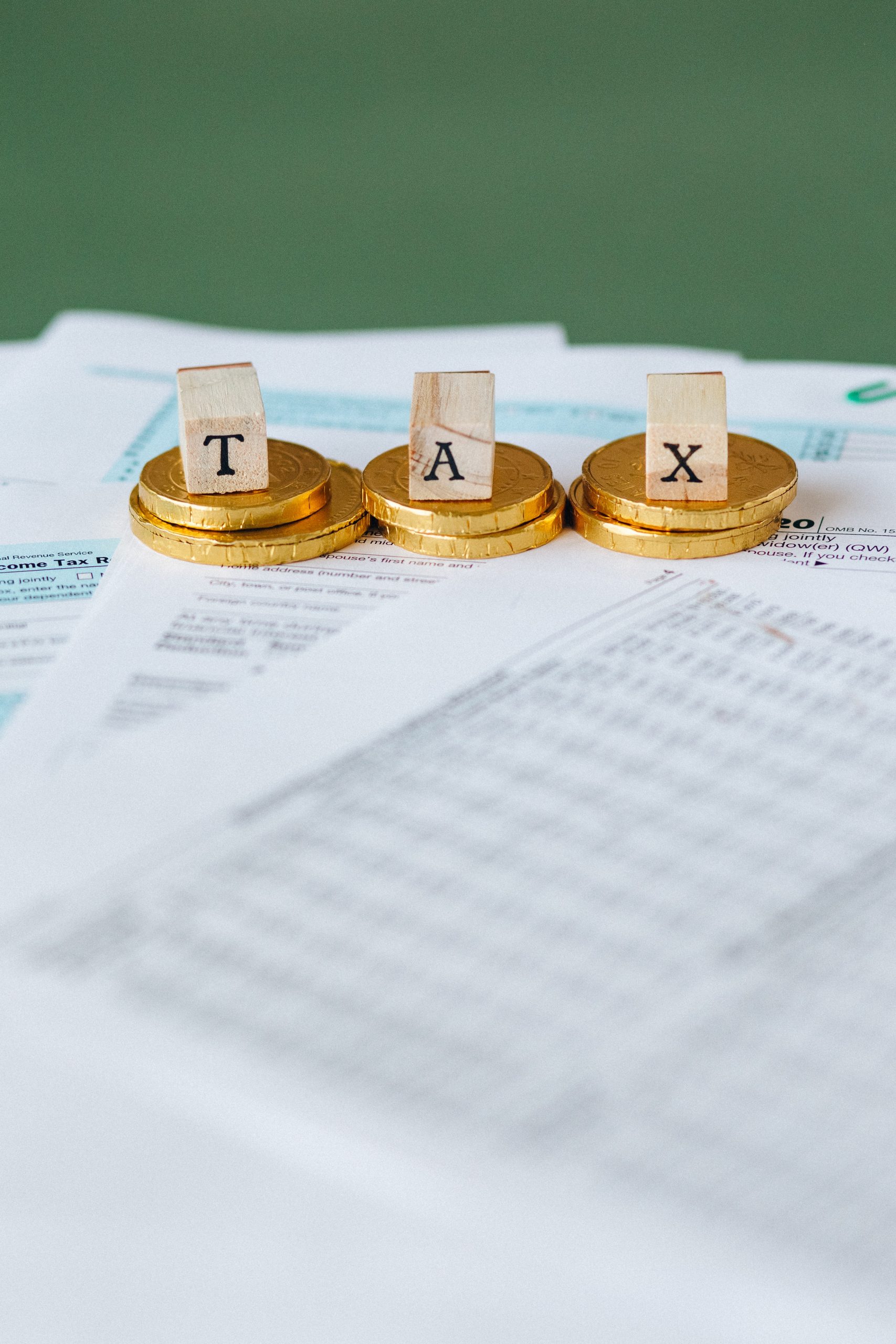
What do Tax Codes mean?
A UK tax code is a numerical value, followed by a letter, that is issued by HMRC to your employer, so they know how much income tax they need to deduct from your salary under PAYE.
HMRC has to issue it because they have all the information on your personal income and any deductions they need to take from you, meaning you can keep things confidential from your employer.
Your tax code lasts for one tax year so both you and your employer will most likely receive a coding notice before the start of a new tax year.
You and your employer may also receive a letter from HMRC to change your tax code if your circumstances change, for example, if:
- you are claiming marriage allowance tax rebate.
- need to pay the £50,000 high-income tax charge.
- are self-employed and want to pay any tax you owe through your PAYE tax code.
How do I find out my tax code?
There are several ways you can check what your tax code is for the current tax year, which started April 6th, 2023, and runs until April 5th, 2024.
Your tax code will be displayed on your payslip, usually listed near your National Insurance number.
Your company has to provide you with a payslip, so if you’re not sure how to access it, ask your employer for guidance.
You can also use the government’s online tax checker tool to view your tax code.
What Is Tax Code 1257L?
1257L tax code is the basic tax code people paying through the PAYE system will have. It is allocated to people with one job and no untaxed income.
Nearly everyone in the UK is entitled to a tax-free personal allowance. This means that you earn a certain amount of your earnings every without being taxed. If your tax code is 1257L, your allowance is £12,570 for the 2023/24 tax year. Let’s look at this in further detail. further in detail.
If you’re employed full-time, part-time, or receiving a private pension you will have received a letter from HMRC with an updated tax coding earlier this year.
Usually around Feb/March, HMRC sends a letter that reveals your tax code for the new tax year (new tax year started on the 6th of April 2023).
The 1257L tax code received from your employer can be broken down as below :
- The number 1257 means that you can earn 12,570 before you pay income tax.
- The letter L means that you are entitled to a standard personal allowance.
Tax code 1257L is the most common tax code for the tax year 2023/24. With the freezing of personal allowances in the Spring Budget 2023, it is expected to remain unchanged until 2028.
It replaces tax code 1250L, which was the most popular tax code in the UK for the tax years 2019/20 and 2020/21.
In Wales, the equivalent tax code is C1270L and in Scotland, it is S1270L.
Your tax code is important as it is used to calculate how much tax you will pay.
The below table breaks down various tax rates and corresponding income slabs for financial years 2023/24 and 2022/23.
2023/2024
2022/2023
Upto £37,700
over £150,000
HMRC converted the personal allowance of £12,570 and turned it into tax code 1257L.
So, to sum up, if you have a tax code 1257L it means that you can earn £12,570 before you pay tax.
How Much Tax Will You Need To Pay With Tax Code 1257L?
The 1257L tax code is a cumulative code. That means you’ll receive a portion of your personal allowance every time you get paid.
For example, if you are paid monthly, you’ll receive £1,047.50 (£12,570 ÷ 12) tax-free each month you get paid. That way by the end of the tax year, you’ll have received your personal allowance in full.
Earnings above this are taxed at 20%. This is for earnings between £12,571 and £50,270.
After this, it increases to 40% for earnings between £50,271 and £125,140 (The tax year 2023/24).
Earnings over £125,140 are then taxed at the highest rate which is 45% (Tax year 2023/24).
If you took a few months of work and had no other job during the tax year, you’ll receive all the personal allowance you are owed in your first payslip if you start a new job. Your employer will know what code to use when you give them your P45.
Note, Scotland has introduced its own tax rates which are slightly different from those stated above.
What are Emergency Tax Codes 1257 W1, 1257 M1, and 1257 X?
The tax code 1257L is considered an emergency tax code only if it is followed by W1, M1, or X. Let’s look into these tax codes in detail.
Tax Code 1257L W1
The tax code 1257L W1 is for those who are paid on a weekly basis and is supposed to be temporary. The “W1” signifies “Week 1” and is non-cumulative which means tax calculation is performed independently without taking into consideration any tax you have paid in the tax year.
Tax Code 1257L M1
A tax code 1257 L M1 is for those who are paid on a monthly basis. The suffix “M1” signifies “Month 1” and is also non-cumulative which means tax calculation is performed independently without taking into consideration any tax you have paid in the tax year.
Tax Code 1257 X
The 1257 X tax code is similar to W1 and M1 tax codes. It just means that HMRC doesn’t know which tax code you should be assigned therefore, it simplifies the process by assigning an “X” meaning ‘unknown tax code’.
If you have the tax code 1257W1, 1257M1, or 1257X then you’ve been put on an emergency tax code. This normally happens if you:
- Start a new job and are not provided a P45
- Begin working for an employer after you’ve stopped self-employment
- Receive company benefits, like a company car
- Receive State Pension
Having W1 or M1 attached to your code means it is a non-cumulative tax code. The tax due on each payment is therefore determined without taking into account any tax you’ve already paid this year, or how much of your tax-free personal allowance has been used.
In other words, it can result in you overpaying tax
Although emergency tax codes are temporary while the necessary information is put together, it does mean you’ll pay tax on all your income above the personal allowance and not receive any backlog of personal allowance you may be entitled to but haven’t used.
If you end the tax year on an emergency tax code, HMRC will add up how much tax you have paid and work out whether you owe anything at the end of the tax year.
They will then send you an HMRC tax code notification letter called a P800 detailing what you are owed and how you’ll be repaid. If you are registered as self-employed, any money you are owed will be credited to your tax account.
I have a 1257L Tax code. Is My Tax Code Wrong?
Tax code 1257L will be correct for most employees. Typically, those with just one job and with no benefits or tax-deductible allowances will have a correct tax code.
However, the tax coding system can quickly go wrong. Typical examples include:
- A change of jobs, having more than 1 job, starting, leaving, or retiring in the year.
- Having more than 1 source of income such as a job and a pension.
- Changes to tax-deductible allowances e.g paying professional subscriptions
- Changes to taxable benefits e.g being provided with a company van for private use.

How Do I Correct My Tax Code?
As soon as you realise there has been a mistake with your PAYE tax code you must get in touch with HMRC by email or phone (0300 200 3300).
You should provide all the necessary, accurate information so they can work out your correct tax code.
Gather together all these details before you contact HMRC:
- Full name (including middle names)
- Date of birth
- Email address
- National Insurance Number
- Employer/pension provider tax reference number
- Employee works number or pension number (private and/or company)
- Estimate of total income for current tax year
- Company benefits (e.g. health care, car fuel allowance)
- Any other income (e.g. savings interest, property rental)
- Weekly State Benefits or State Pension payments
Why is it important to get your Tax code corrected?
If there is an error with your tax code, then you are paying the wrong amount of tax.
If you have paid too much then you can reclaim the overpayment, as long as you are within HMRC’s deadlines.
If you have paid too little, then you need to repay HMRC. Either way, it is better to find out sooner than later.
Claim Your Tax Back
Claim My Tax Back Limited is a leading financial consultant, helping thousands of UK working professionals and married couples claim their different tax rebates (Mileage Rebate Allowance, Uniform Tax Rebate, and Marriage Tax Rebate) from HMRC. We offer high-quality of service with no hidden costs.
If you’re looking for assistance in getting back tax refunds from the UK HMRC, get in touch with our friendly team.


